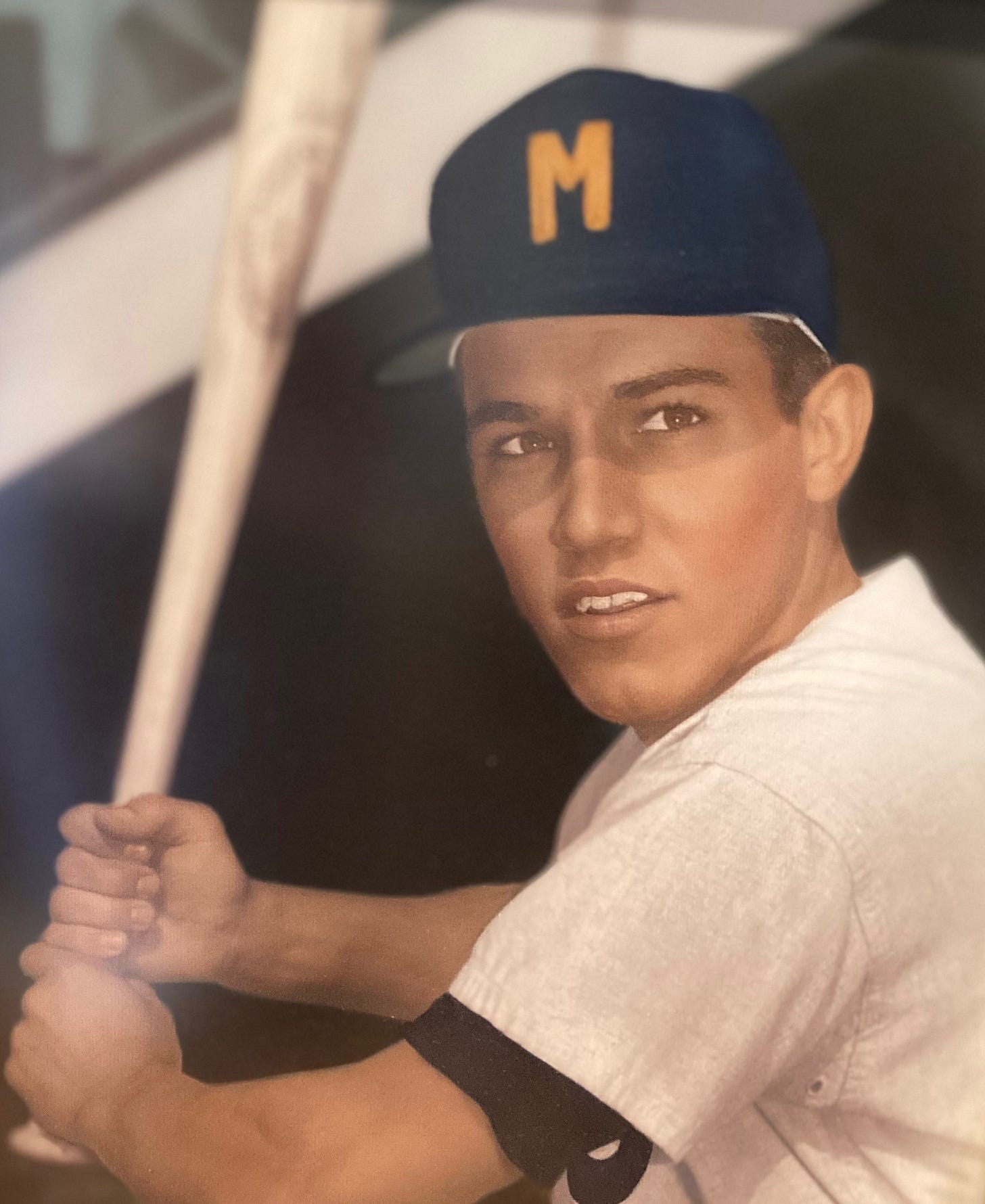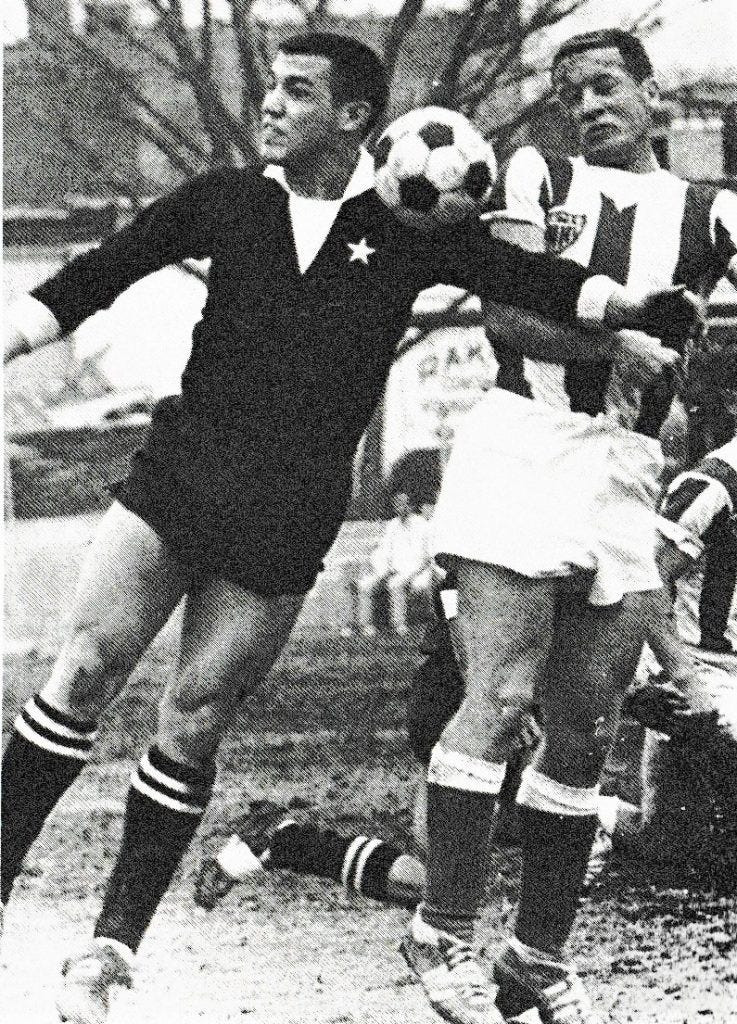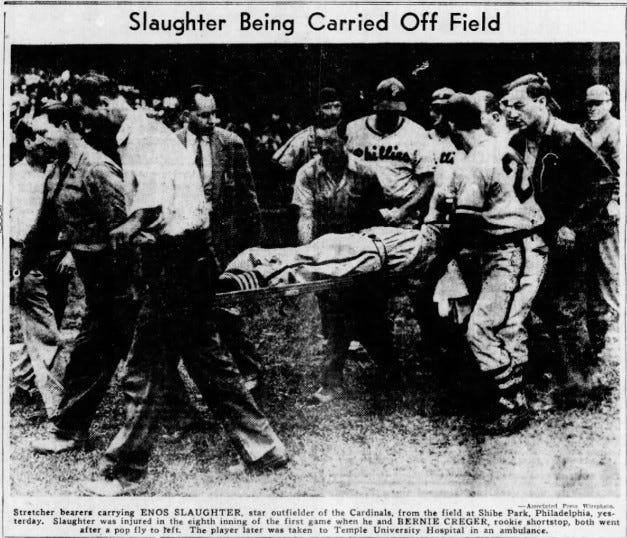After leaving Marion's Mets, Carl Gentile made a name for himself in soccer
Plus, kicking it with the Oilers; learning from Ducky Medwick; and a local connection to the Gas House Gang
Marion Mets Newsletter – Issue 36
Most players who buttoned up the pinstriped Marion Mets jersey in the 1960s and 70s did so with aspirations of someday making it to the big leagues. Marion, Virginia, was the first step along the journey to the top.
A few made it. A small group had long, successful careers in The Show, as players like to call the major leagues, and several others had at least a cup of coffee there, playing a season or two while shuffling back and forth between the majors and minors.
Many others, however, moved on to other professions. They became coaches, teachers, doctors, actors, priests, circus trainers, bankers, broadcasters, and so forth.
When St. Louis University senior Carl Gentile [pronounced Jen-tilly) signed a free agent contract with the New York Mets, he, too, had dreams of playing for a major league ball club. “My dream was to be a professional athlete,” Gentile told me during a phone conversation on March 7, 2025.
A two-sport star in college, Gentile agreed to a contract in June 1966 with the Mets for a “modest bonus,” the St. Louis Post-Dispatch reported, and made his way east to Marion to begin his trek up baseball’s minor league ladder.
At St. Louis University, Gentile was an All-American in baseball and soccer. During his senior baseball season, he batted .346 and led the Missouri Valley Conference with 28 stolen bases.
“Baseball was my first love and my fondest love,” he said.
As most players do, Genitle found minor league baseball challenging, but for him, it was mostly because the parent club – the New York Mets – had assigned so many players to Marion.
“My disappointment was we had 50-plus players sitting on the bench and you got to play once a week,” Genitle recalled. “If you got a game once a week, you had to produce. If you didn’t, you were back on the bench. Sadly for me, that’s what occurred.”
Several weeks passed from the time Gentile played his last college baseball game at St. Louis until the time he took his first swings in Marion.
“I hadn’t seen a fastball or a curveball in four or five weeks. When I first got in, I was happy to hit a foul ball,” he joked. “Don’t get me wrong, I’m not making excuses. It was what it was. I was not disgruntled with that fact. But, I was very frustrated.”
There was one more thing keeping Gentile out of the Mets’ everyday lineup, he noted, center fielder Jerry Morales.
“He was a very good player,” said Gentile, who also played in centerfield. “I played behind him, so I didn’t get to play very much while he was there.”
New York signed Morales as a free agent out of Puerto Rico that summer and sent him to Marion, where he lit up Appalachian League pitchers with his bat. Morales hit for a .446 batting average for Marion in July that season and was named by the Topps Chewing Gum Company as the league’s player of the month. He was named Appy League player of the year at the end of the season.
Even though he was stuck behind the future major leaguer – Morales played 15 seasons in the Majors – Gentile impressed Marion Skipper Buddy Peterson enough to crack the lineup for 25 games. And, he played very well, hitting .276, stealing 10 bases and smacking two doubles and two triples. Gentile also had a good eye for the strike zone, walking 20 times and earning a solid .452 on-base percentage.
That year, Marion won the Appalachian League title with a doubleheader sweep of Salem on the last day of the season. Gentile played a significant role in those wins, going 4-for-8 at the plate. The speedster hit a double in the first game, a triple in the nightcap, and scored five runs overall.
“I did hit well, and was very pleased with what I did there in Marion,” he said.
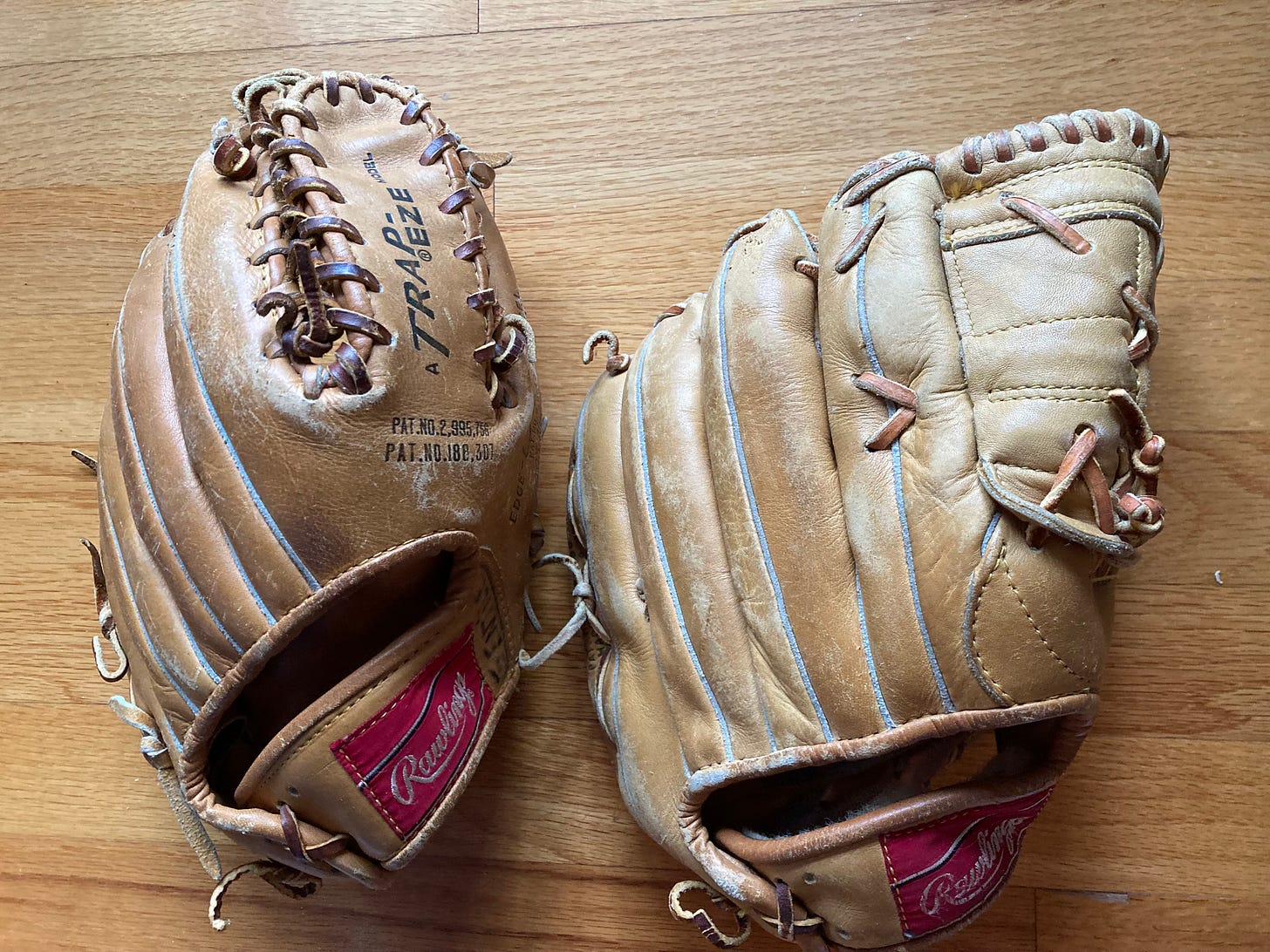
Helping his team win a league title in its second year of existence was a thrill for Gentile, now 81 years old. “That was the icing on the cake,” he said. “When you’re a competitor, that’s what you strive for.”
After the season ended, the Missouri native evaluated the season and made a difficult decision, realizing that baseball, his first love, was not going to be the path toward his dream of being a professional athlete.
The night before Gentile signed his free agent deal with the New York Mets, he started at forward for White Star, the St. Louis-based amateur soccer club, in an exhibition contest against European champions Bayern Munich in Busch Stadium, the Missouri city’s brand new riverfront ballpark.
It wasn’t much of a game for the 8,197 fans who paid to watch.
“Munich scores 11 Hits in Blitz of White Star” was the next-day headline in the Post-Dispatch. Bayern raced out to an 8-0 lead in the first half and finished with an 11-2 victory.
Gentile played soccer at Christian Brothers College High School and won an NCAA national championship with St. Louis University in 1965. That same year, he received first-year All-American honors. A year earlier, the St. Louis native played for the U.S. men’s soccer team in its bid to qualify for the 1964 Summer Olympics in Tokyo. Gentile scored three goals in a win over Panama and a goal in a 2-1 defeat to Mexico that eliminated the American team from the tournament.
“The people in St. Louis, if they mention my name without cursing,” he joked, “know me as a soccer player.”
Gentile played two seasons, 1967 and ‘68, for the St. Louis Stars in the North American Soccer League. However, after team owners decided to downgrade from professional to semi-pro, Gentille left the squad. “That wasn’t what I was interested in,” he explained.
Once again, Gentile sought another route to being a pro athlete.
This time it was football, specifically, the NFL.
Gentile was an all-state running back in high school and also served as his team’s kicker. “I did kickoffs, field goals and extra points,” he said. During that time, he worked as a ball boy for the St. Louis Cardinals pro football team, met some of the players and coaches, and later leveraged those relationships to get a shot at kicking for an NFL team.
In 1969 and ‘70, Gentile tried out for the league’s Houston Oilers, and got an opportunity to kick field goals in the team’s exhibition games. In early September of ‘69, the Oilers cut Gentile just before the season began. The next season, in August 1970, he asked the team to cut him in the midst of another pre-season kicking competition.
Soon thereafter, Genitle spoke about the situation with sports writers, saying “I think I’m as good as Roy Gerela [his kicking competitor and the Oilers' 1969 fourth-round draft pick]. But, there’s no use kidding myself, I can’t make it here, so I asked coach [Wally] Lemm to put me on waivers so I might get a chance with another club.”

Gentile never caught on with an NFL team, but he did kick briefly with the Trans-American Football League’s Omaha Mustangs, who played home games at Rosenblatt Stadium, the long-time home of the NCAA Division I College Baseball World Series.
That experience, however, was the end of Gentile's pro sports dreams.
“I got to thinking, I have two children at home. I have a wife. I have to go to work. I can’t just keep trying out to be a professional athlete as much as I wanted to be,” said Genitle, who was elected to the St. Louis Sports Hall of Fame in 2013. “When you have a family to take care of, you have to make different decisions.”
He briefly entertained thoughts of becoming a doctor, but soon realized he didn’t want to spend that much time in school. “That would be half my life,” Gentile said, calculating the number of years he would have needed to attend medical school.
Armed with a master’s degree in marketing, Gentile went to work in a bank, and coached his son’s soccer teams for about a decade. “I just decided I had a fun time with what I had done,” he explained, “and I was going to enjoy my family and the rest of my life.”
Gentile reminders
Carl’s famous coaches at St. Louis U.
Gentile’s performance and baseball knowledge expanded exponentially while playing college ball at St. Louis, thanks partly to two extraordinary coaches with years of baseball experience. Roy Lee was the Billikens' head coach when Gentile was on the team in the mid-60s. Lee played several seasons in the minors and got an opportunity in 1945 to pitch in three games with the New York Giants. Serving as Lee’s assistant was baseball Hall of Famer Joe “Ducky” Medwick. Ducky had a .324 lifetime batting average in 17 big league seasons, most of those with the St. Louis Cardinals – he was part of that team’s famous Gashouse Gang – plus the Brooklyn Dodgers and Giants.
As an assistant coach with the Billikens, Medwick was “sold on college ball,” he told sports writer Jim Bell in the summer of ‘66. “It’s the best way a kid can learn and gain confidence in himself.”
Gentile can attest to that statement. “I was fortunate to be exposed to these gentlemen,” he said. “I always looked forward to playing baseball when I was on the team.”
One more local connection
Playing alongside Ducky Medwick on that 1947 St. Louis Cardinals team – although briefly – was Wytheville, Virginia-born Bernie Creger. He played 15 games for the Cards and hit just .188 in 18 plate appearances while backing up all-star shortstop Marty Marion. Bernie was a solid hitter through the minor leagues but made it to the majors with his glove work at short.
For readers unfamiliar with Marion’s surroundings, Wytheville is about a 25-minute trip north on Interstate 81. The town has a rich baseball history. For years, it hosted minor league teams affiliated with the Cardinals, Senators, Twins, A’s, Reds, Braves and Cubs of the major leagues.
Bernie played 15 games for the Cards that season, collecting three hits – one of those was a double – and a stolen base. While he hit well throughout his minor league career – he spent two seasons with the Johnson City (Tenn. ) Cardinals of the Appalachian League – it was Bernie’s glove work that punched his ticket to the majors, where he backed up all-star shortstop Marty Marion. There was a particular instance, however, one afternoon in Philadelphia where Bernie’s handiwork with his glove proved detrimental to one of his teammates. Subbing in for Marion, Bernie ran back on a blooping fly ball. “The long-legged rookie,” as the St. Louis Post-Dispatch reported, “made a brilliant one-handed over-the-shoulder catch.” As Bernie was running back toward the outfield, veteran Cardinals left fielder Enos Slaughter charged in, also aiming to make the catch, and slid on the wet grass underneath Bernie, whose long legs kicked Slaughter in the neck. Slaughter lay unconscious for a moment before being carted off the field. He was later diagnosed with a concussion.
‘Where the stars of tomorrow…’
Gentile and I played a brief game of phone tag before eventually connecting. The very first voicemail he left on my phone started like this: “Chad, it’s Carl Gentile of the old Marion Mets… where the stars of tomorrow shine tonight!"
You may know those words to be part of PA announcer Bob Garnett’s opening line before each Marion Mets home game. In full, Garnett warmly greeted fans to the ballpark by saying: “Welcome to Marion Stadium, home of the Mets, where the stars of tomorrow shine tonight.”
Gentile isn’t alone in remembering this notable line. Several other players have brought it up in conversations. “As a player out there, you get all puffed up when you hear that,” recalled Jim McGregor, a member of the ’67 Marion Mets. “Oh, gosh, yeah! That’s so cool!”
Writer Robert Lipsyte mentioned it in his 1966 New York Times story about the Marion Mets.
“I think everybody in Marion took that to heart, which was lovely,” Lipsyte told me a couple of years ago. “The whole thing was really fun.”
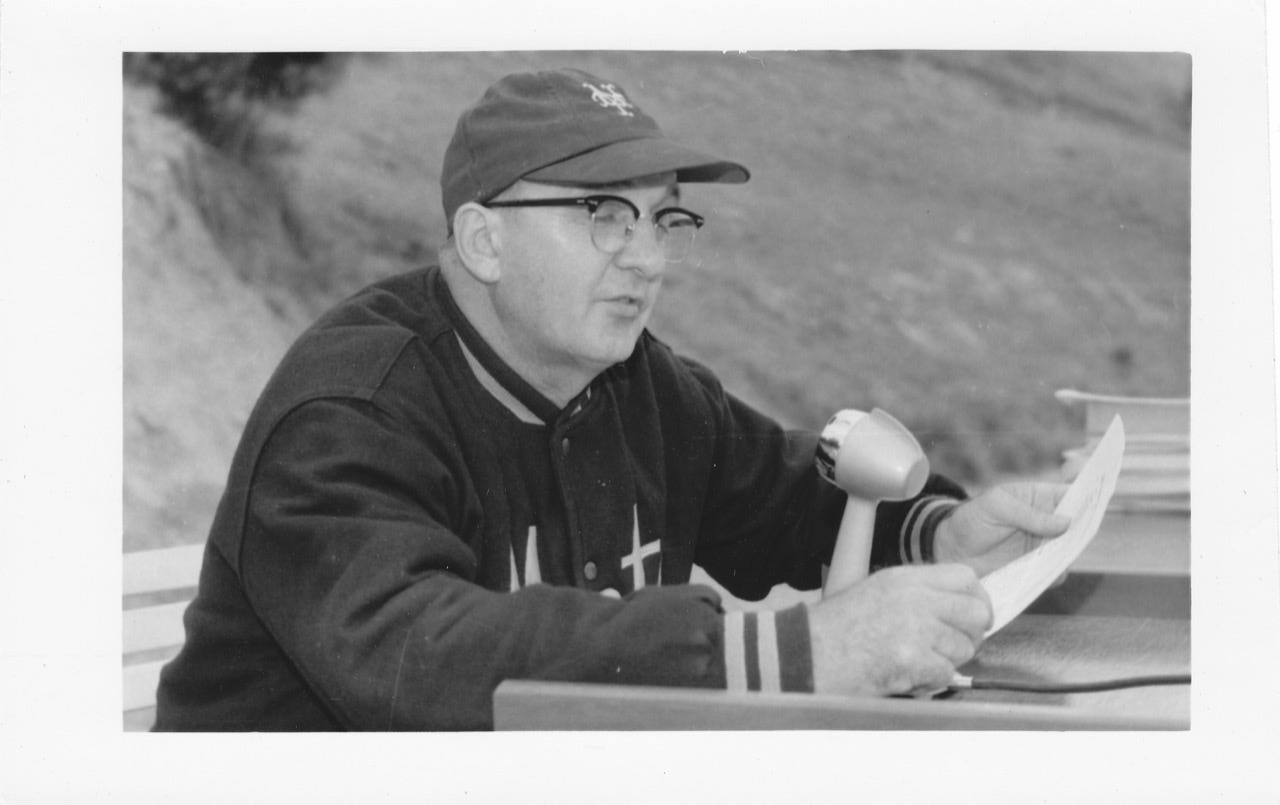
Before you go, this is a reminder that I’m always looking for stories about the Marion Mets. If you were a player, fan, ball boy, concession stand worker… anything… and have a story to share, I’d love to hear from you. You can reach me at chadoz97@gmail.com. Also, if you see something I missed or got wrong, send me a note.
And don’t forget to Connect with Marion Mets on Facebook.




